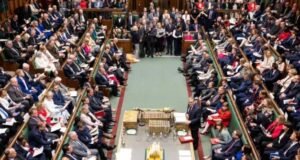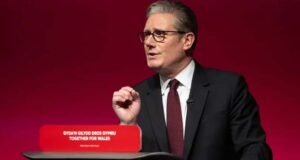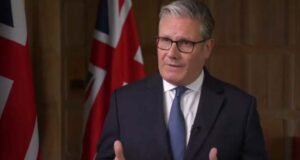
Dozens of military leaders from countries interested in supporting Ukraine’s security during a potential ceasefire with Russia will gather in the UK on Thursday to discuss plans for a peacekeeping force.
UK Prime Minister Keir Starmer, who is co-leading efforts to form a “coalition of the willing” alongside French President Emmanuel Macron, is set to address the meeting, which will include approximately 30 military officials.
This gathering comes amid growing uncertainty about the group’s potential role, especially following Russian President Vladimir Putin’s demand that Western military aid to Ukraine cease as a precondition for any peace agreement. Russia has also ruled out accepting foreign troops on Ukrainian soil as part of a ceasefire deal.
Since US President Donald Trump initiated direct negotiations with Russia last month, Starmer and Macron have been working to build the coalition. They argue that the group, along with US support, is crucial to providing Ukraine with the security guarantees needed to prevent Putin from breaching any ceasefire agreement.
However, in a 90-minute phone call on Tuesday, Putin told Trump that a comprehensive peace deal would only be possible if the West halted all military aid and intelligence to Ukraine. According to the Kremlin, Putin also insisted that Ukraine must not be allowed to rearm or continue with mandatory mobilization efforts. In exchange, Russia has agreed to a 30-day suspension of strikes against Ukraine’s power grid, although both sides have accused each other of continuing to target energy infrastructure.
Starmer and Macron have expressed willingness to deploy British and French troops to Ukraine. The UK government has stated that a “significant number” of countries are prepared to contribute, though the exact number of nations eager to take part remains unclear. Britain anticipates more than 30 nations could contribute to the coalition in various capacities.
Prime Minister Starmer has suggested that contributions could include logistics, surveillance, and engineering support, such as providing airfields and housing for personnel.
The meeting in the UK marks a shift toward the “operational phase” of the coalition’s planning. Meanwhile, Trump’s recent statements regarding the US no longer guaranteeing European and Ukrainian security have raised concerns among NATO allies, prompting many countries to consider increasing their defense spending.
Following a call with Ukrainian President Volodymyr Zelensky, Trump emphasized that efforts to end the war are “very much on track.”
 Weekly Bangla Mirror | Bangla Mirror, Bangladeshi news in UK, bangla mirror news
Weekly Bangla Mirror | Bangla Mirror, Bangladeshi news in UK, bangla mirror news







